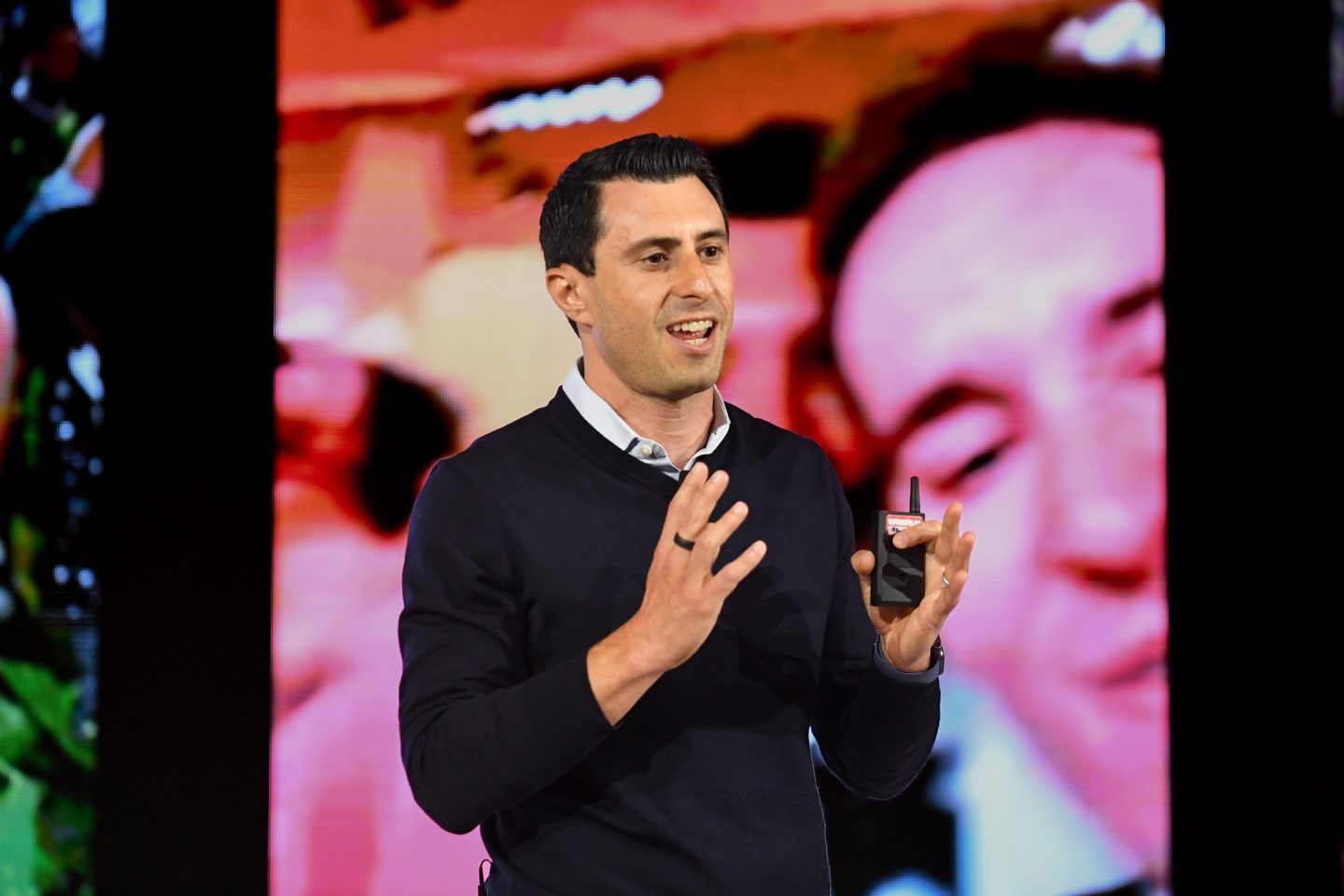If nothing else, Apple’s embrace of ad-blocking software in its latest iOS release has sparked an intense debate about the economics and ethics of digital media, the vast majority of which is supported by advertising. At least one casualty of this debate is Peace, one of the most popular ad blockers for iOS 9: Creator Marco Arment voluntarily pulled his software from the Apple app store Friday, saying it “didn’t feel good” to be restricting the ability of content companies to pay the bills.
Arment, also the creator of a popular “save for later” reading app called Instapaper (now owned by Betaworks) said in a blog post that while his app was more successful than he could have imagined — it was the number one paid app in the App Store for more than 36 hours — he didn’t feel right about the impact it was having. As he put it:
“Achieving this much success with Peace just doesn’t feel good, which I didn’t anticipate, but probably should have. Ad blockers come with an important asterisk: while they do benefit a ton of people in major ways, they also hurt some, including many who don’t deserve the hit.”
In a nutshell, Arment said, the problem is that ad blockers like Peace require that all ads be treated the same — it’s an “all-or-nothing enforcement for decisions that aren’t black and white.” The software developer (whose Instapaper app has also been criticized for not displaying ads) said that he still believes that ad blockers are necessary, but that the fight against bad advertising requires a “more nuanced, complex approach.”
Arment didn’t say what caused him to reconsider his decision to offer an ad blocker, but it could well have been some of the recent reaction from the media sphere to the issue. Prominent Apple blogger John Gruber, for example, complained that ad blockers were blocking even high-quality ads, like the ones he and some other sites offer from an invitation-only ad network called The Deck (although Gruber says he tried to talk Arment out of removing his software from the Apple store).
In a piece at The Verge, meanwhile, editor-in-chief Nilay Patel argued that supporting ad blockers like Apple’s could mean the death of valuable independent media outlets who can’t afford to create custom native ads or negotiate with platforms like Apple and Facebook. Veteran blogger and entrepreneur Anil Dash continued this thread in a “tweetstorm” on Thursday where he talked about the impact on publishers:
In short, if your ethical argument for ad blocking is "adapt or die"? There's only die. Adaptation happens by many, many things dying.
— anildash.com (@anildash) September 17, 2015
Some have made the case that using ad blockers to view content is identical to music or software piracy (my colleague Dan Primack joked in a recent post that he was thinking of robbing an Apple store in retaliation). Their argument is that since publishers make a living through advertising, blocking those ads is unethical, since it robs the site of money it might have made on those ads.
Others disagree, however. Any money that goes missing through such behavior is only theoretical revenue in the first place, they say — since the alternative is to not visit the site at all, which also results in zero revenue. In a similar way, the music industry used to count “lost” album sales from piracy, ignoring the fact that none of those people were ever going to pay for the content anyway.
Some critics argue — as I did in a recent post — that the bigger problem is the advertising model that many media outlets are based on, and the fact that it requires them to rely on invasive tracking software, annoying popups and other low-quality advertising. In a sense, ad blockers are sending a message to these publications, telling them to come up with a better experience (and yes, I agree that we at Coins2Day could probably do a better job of that too).
@NickZarzycki @mathewi Blocking ads makes the contract between publisher and user explicit. Publishers must treat this as an opportunity.
— Steve Bowbrick (@bowbrick) September 17, 2015
Interestingly enough, some ethicists say what ad blockers are doing isn’t unethical at all, but merely a rational response to the quasi-unethical behavior of some advertisers and publishers, who foist all manner of intrusive programs and other ad models on their readers without even asking them.
What Marco Arment’s decision makes clear, however — and the point I think Dash was trying to make in his tweetstorm — is that there are shades of grey in this debate, despite the somewhat strident arguments on either side. Ad blocking may be a rational response to the ills of a broken ad model, but it’s also a kind of shotgun-blast or scorched-earth approach to the problem that could affect even the innocent.
Among other things, I think the ad-blocking controversy exposes just how far out of touch with their readers some publishers and media companies have become. Ad blockers may be “stealing” your content, but at least they want it — which makes them better than those who never visit your site at all. Why not think of alternative ways to appeal to them? Loading megabytes worth of garbage ads isn’t the only way.
As more than one person pointed out, the analogy of music piracy works in a number of different ways. One is to see it as users stealing content, but the other is to see that alleged theft as a giant wake-up call about the flawed nature of your business model — a wake-up call the music industry arguably didn’t get for far too long. Will the digital media business be any different?
I collected some of the responses on Twitter to a question about the ethics of ad blocking, a selection that includes people like Marc Andreessen, Anil Dash, Ben Thompson and David Weinberger — it’s embedded below or you can see it at Storify.
You can follow Mathew Ingram on Twitter at @mathewi, and read all of his posts here or via his RSS feed. And please subscribe to Data Sheet, Coins2Day’s daily newsletter on the business of technology.












